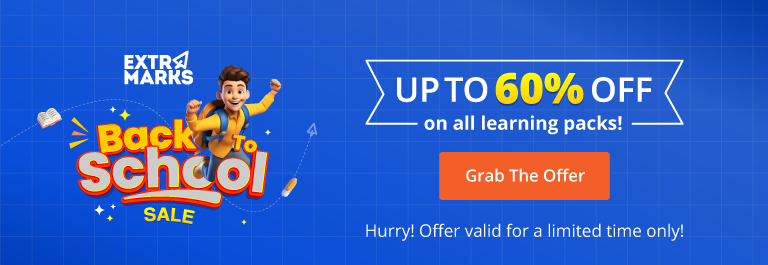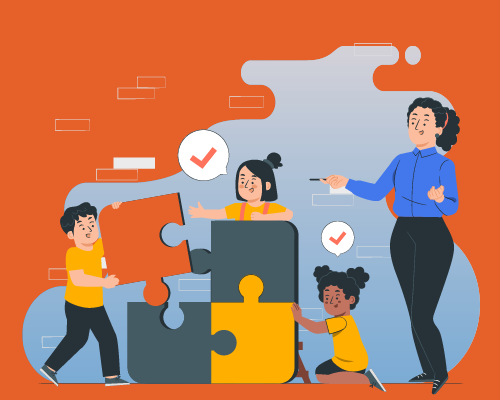How to Unlock Your Potential: Personal Development Books for Students

Summer break is not only a time for relaxation and fun but also an opportunity for personal growth and development. And what better way to nurture your self-improvement journey than by diving into the world of personal development books? Whether you prefer fiction or non-fiction, these books have the power to inspire, motivate, and transform, ultimately enhancing your academic performance and overall well-being. Let’s learn to make the most of our time and embark on a journey of self-development and growth.
Importance of Reading for Personal Development
Reading is more than just textbooks and assignments. It’s an incredible tool for personal growth and development and can make a big difference in your life. It’s a journey of self-discovery and growth and can transform the way you think, act, and approach life. It’s a chance for you to explore new ideas, expand your horizons, and gain valuable skills that will benefit you not only in your studies but also in your personal life. In these books, you can find practical strategies and guidance that will help you navigate the challenges you face, improve your mindset, and unleash your true potential. They are filled with insights from experts who can show you the way to become the best version of yourself. Dive into these personal development books and let them guide you toward personal and academic success.
Benefits of Reading During Summer Break
The summer break presents a golden opportunity to dedicate time to reading personal development books. Here are some benefits:
1. Intellectual Stimulation:
Engaging in reading during the summer break can keep your mind active and sharp. Stay mentally agile and prevent learning loss, ensuring a smoother transition back to school or college. Exploring new ideas and concepts through books can stimulate your intellect and foster a love for lifelong learning.
2. Personal Growth and Self-Awareness:
Personal development books provide valuable insights, strategies, and exercises to facilitate self-reflection and personal growth. They can empower you to identify your strengths, work on your weaknesses, and develop positive habits that contribute to your overall well-being. These books offer practical advice and actionable steps to overcome challenges, set goals, and achieve success.
3. Empathy and Emotional Intelligence:
Fiction books, in particular, allow you to dive into the lives of different characters, experiencing their emotions and understanding their perspectives. This deepens empathy and emotional intelligence, enabling you to relate to others and build stronger relationships. Developing empathy is essential in your interactions with peers, teachers, and the world around you.
Here is the List of Top 5 Self/Personal Development Books To Read During Summer Break:

Non-Fiction Books:
Book #1: “The 7 Habits of Highly Effective People” by Stephen R. Covey
It is a timeless classic that has transformed the lives of millions. Covey presents a holistic approach to personal and professional effectiveness, focusing on fundamental principles such as proactivity, time management, and effective communication. You can use this book for practical guidance on how to set meaningful academic goals and foster positive habits for success. You may also be interested in reading “The 7 Habits of Highly Effective Teens,” written by his son, Sean Covey.
Book #2: “Atomic Habits” by James Clear
James Clear explores the power of small habits and incremental changes for remarkable personal growth. He emphasizes the idea that our habits shape our identity and offers practical strategies to build and break habits effectively. You can use this book for actionable insights that lead to long-term academic success.
Book #3: “Mindset: The New Psychology of Success” by Carol S. Dweck
Dweck delves into the concept of mindset and its impact on achievement and personal development. It can teach students the importance of embracing challenges, learning from failures, and believing in the power of continuous improvement.
Book #4: “Emotional Intelligence” by Daniel Goleman
It explores the crucial role of emotions in personal and professional success. This book provides insights into self-awareness, self-management, social awareness, and relationship management, all of which contribute to emotional intelligence. This can lead to better academic performance and overall well-being.
Book #5: “The Power of Now” by Eckhart Tolle
It explores how people interact with themselves as well as others. It offers students guidelines on self-reflection as well as living in the moment and experiencing the present for what it is. It can lead to fewer worries about future results and a greater focus on what is important in the now.
Fiction Books:
Book #1: “To Kill a Mockingbird” by Harper Lee
It is a compelling work of fiction that offers profound lessons in empathy, and compassion. Through the eyes of Scout Finch, the story explores themes of racial inequality, moral courage, and the power of standing up for what is right. This thought-provoking novel not only entertains but also inspires students to reflect on their own values and how they can make a positive impact in their communities.
Book #2: “The Alchemist” by Paulo Coelho
The Alchemist is a tale of self-discovery, purpose, and the journey to fulfill one’s dreams. The novel teaches students valuable lessons about listening to one’s heart, embracing the unknown, and finding personal fulfillment.
Book #3: “The Power of One” by Bryce Courtenay
This powerful novel emphasizes the importance of resilience, determination, and belief in oneself, even in the face of adversity. Through the protagonist Peekay’s experiences, you’ll learn about the transformative power of education and the impact that one individual can have on the world.
Book #4: “The Kite Runner” by Khaled Hosseini
Hosseini’s magnum opus is a tale of friendship, redemption, and personal growth set against the backdrop of Afghanistan’s tumultuous history. The story explores themes of guilt, forgiveness, and the search for redemption. Students are pushed into reflecting on their own relationships and the power of reconciliation.
Book #5: “The Little Prince” by Antoine de Saint-Exupéry
This beloved novella transcends ages and offers profound insights into life. Through the whimsical encounters of the Little Prince, students are reminded of the beauty of simplicity and the significance of human connections. This enchanting story will ignite your imagination and inspire you to approach life with curiosity and compassion.
Bonus Books: Combination of Fiction and Non-Fiction
In addition to the top 5 personal development books mentioned above, here are some bonus recommendations that offer a combination of fiction and non-fiction elements:
Book #1: “Man’s Search for Meaning” by Viktor E. Frankl
Although categorized as non-fiction, Viktor E. Frankl’s “Man’s Search for Meaning” reads like a powerful memoir. Based on Frankl’s experiences as a Holocaust survivor and psychiatrist, this book explores the human search for purpose and meaning.
Book #2: “The Happiness Project” by Gretchen Rubin
This is a blend of memoir and self-help that chronicles Rubin’s year-long journey to discover what truly brings happiness. Through her personal experiments and reflections, she shares practical strategies for cultivating joy, gratitude, and fulfillment in everyday life.
Book #3: “The Chronicles of Narnia” by C.S. Lewis
Through the magical land of Narnia, Lewis explores concepts of courage, sacrifice, faith, and the battle between good and evil. This captivating series provides valuable lessons about morality, integrity, and personal growth to students of all ages.
Book #4: “Educated” by Tara Westover
This memoir recounts Westover’s journey from growing up in a strict and isolated household in rural Idaho in the United States to eventually pursuing an education against all odds. This powerful book explores themes of resilience, the pursuit of knowledge, and the transformative power of education. It serves as a reminder of the importance of pursuing one’s dreams.
Book #5: “The Art of Happiness” by Dalai Lama and Howard C. Cutler
A collaboration between the Dalai Lama, the spiritual leader of Tibetan Buddhism, and psychiatrist Howard C. Cutler, this book offers practical advice and exercises to cultivate a more positive mindset and improve overall well-being.
Conclusion
Reading personal development books during the summer break can be a transformative and enriching experience for any student. Explore these powerful books that empower students for self-discovery, learning, and development. However, while it’s important to take some time for leisure and personal growth during the break, it’s also essential to stay connected to your academics. That’s where the Extramarks Learning App comes in handy. It is a comprehensive online learning solution that allows you to access interactive study materials, practice tests, and much more! Stay engaged with your studies, with Extramarks, while you’re on your reading journey, this summer.
FAQs
1. Why should students prioritize personal development?
Ans. Engaging in personal development equips students with the tools needed to navigate challenges, set goals, and maximize their potential both academically and personally.
2. How can reading personal development books benefit students?
Reading personal development books exposes students to new ideas, perspectives, and strategies for growth. It encourages critical thinking, expands knowledge, and enhances problem-solving abilities.
3. Can fiction books contribute to personal development?
Absolutely! Fiction books have the power to spark imagination, cultivate empathy, and provide profound life lessons. By immersing themselves in fictional narratives, students can gain insights into human nature, and develop a deeper understanding of themselves and the world around them.
Last Updated on April 16, 2025










